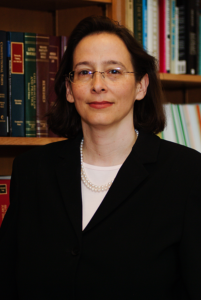Stanford Law’s Pam Karlan: Remembering Justice Stevens
The voters I have spent much of my career representing before the Supreme Court, owe a special debt of gratitude to Justice Stevens. He wrote the opinion for the Court in the first case I argued, Chisom v. Roemer, 501 U.S. 380 (1991), where the Court held that section 2 of the Voting Rights Act covers judicial elections. And he announced the judgment of the Court in the second case I argued, Morse v. Republican Party of Virginia, 517 U.S. 186 (1996), where the Court held that the Act covered the Republican Party’s nominating process. He long ago recognized the problems with political gerrymandering, political patronage, and campaign finance.

I loved watching the Justice at oral argument. He was a great questioner. My favorite, because it indicated so much about how his mind worked, was a question he often asked in statutory cases. Here’s the version he asked opposing counsel the final time I got to argue before him, in Dolan v. United States: “Let me ask you this question: If we conclude there is a hole in the statute that Congress has to amend, is it more likely that Congress will cure the statute if we rule for you or if we rule against you?” That question captures so much of Justice Stevens—the courtesy, the sophistication, and the concern with the real-world consequences of the Court’s rulings.
Pamela S. Karlan is the Kenneth and Harle Montgomery Professor of Public Interest Law and Co-Director of the Supreme Court Litigation Clinic at Stanford Law School. One of the nation’s leading experts on voting and the political process, she has served as a commissioner on the California Fair Political Practices Commission, an assistant counsel and cooperating attorney for the NAACP Legal Defense Fund, and a Deputy Assistant Attorney General in the Civil Rights Division of the U.S. Department of Justice (where she received the Attorney General’s Award for Exceptional Service – the department’s highest award for employee performance – as part of the team responsible for implementing the Supreme Court’s decision in United States v. Windsor).
